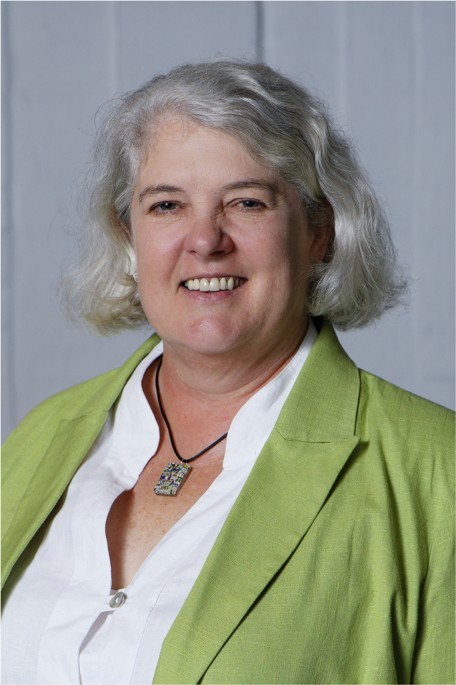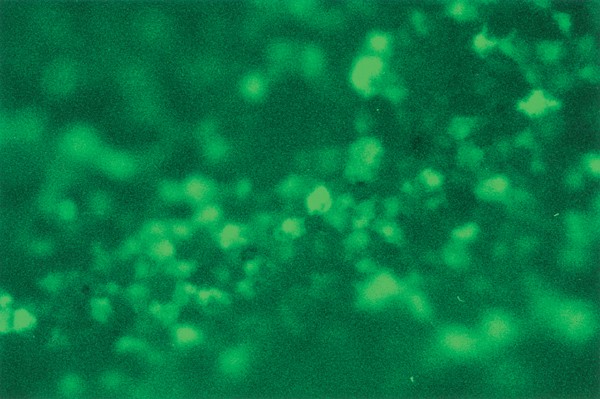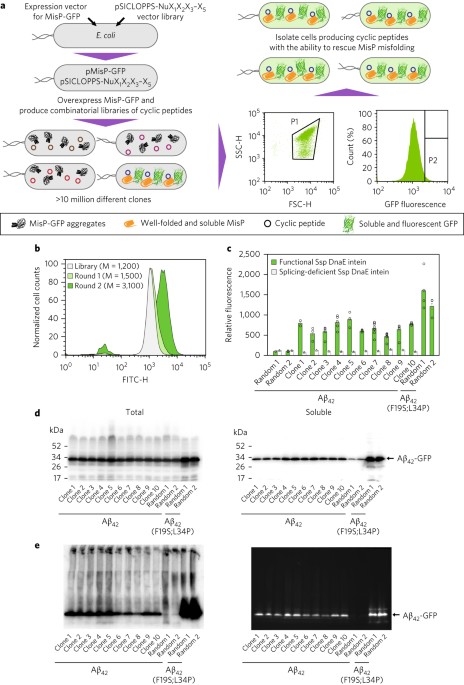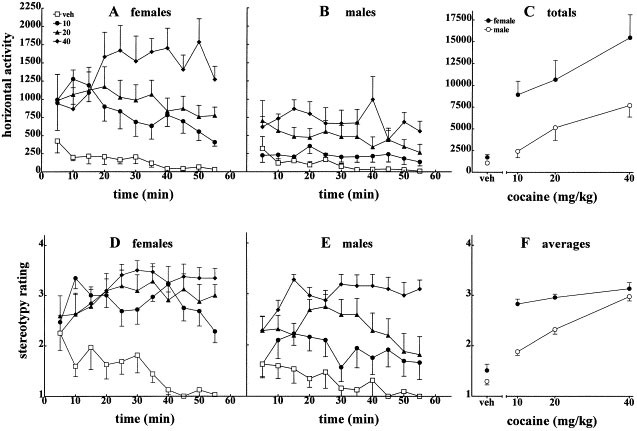
- Select a language for the TTS:
- UK English Female
- UK English Male
- US English Female
- US English Male
- Australian Female
- Australian Male
- Language selected: (auto detect) - EN
Play all audios:
Susan Bourne is Professor of Physical Chemistry at the University of Cape Town, South Africa. Susan Bourne’s PhD, obtained at the University of Cape Town, was a study of organic inclusion
compounds undertaken under the supervision of Luigi Nassimbeni. After a postdoctoral period in Texas, USA, she returned to Cape Town to establish an independent research group in
supramolecular chemistry and crystal engineering. She was the first woman Professor of Chemistry at the University of Cape Town. Credit: Photographer Michael Webb ©University of Cambridge
Her research interests include the application of physicochemical methods to supramolecular materials and crystal engineering of metal-organic materials, with the aim of correlating solid
state structure with physical properties and reactivity. Susan has had stints as Head of Department and Interim Dean of the Faculty of Science at the University of Cape Town. She is a member
of the executive committee of the International Union of Crystallography and chairs the Board of the Cambridge Crystallographic Data Centre. She is a Fellow of the Royal Society of
Chemistry and a Fellow of the African Academy of Sciences. In 2019 she received an IUPAC award as a Distinguished Woman in Chemistry or Chemical Engineering. WHY DID YOU CHOOSE TO BE A
SCIENTIST? I became attracted to science at high school. The logic and sense of rules and laws underpinning the universe was appealing, and I’ve always enjoyed solving puzzles. My interest
in chemistry was sparked when we had no science teacher for my final grades at high school. Knowing I needed to pass the school-leaving exams, I read the textbook cover to cover and I was
hooked! When I started my research career as a postgraduate student I became excited by the prospect of discovery and I’ve never lost the joy of seeing a new crystal structure on my screen
for the first time. WHAT SCIENTIFIC DEVELOPMENT ARE YOU CURRENTLY MOST EXCITED ABOUT? My research centers on using insights developed through supramolecular chemistry which has reached a
mature stage as a science. Questions we’ve been asking since the 1990s are now being addressed. Can we predict the way molecules pack in crystal structures? Can we make useful materials,
that have properties which provide some value? Is it possible to produce molecular-sized machines or use weak interactions to mimic and so understand the way that nature uses these same
interactions in living systems? Significant advancements have been made in each of these areas, making this a dynamic and exciting field of study. WHAT DIRECTION DO YOU THINK YOUR RESEARCH
FIELD SHOULD GO IN? Advances in artificial intelligence offer promising opportunities for the intelligent analysis of large-scale crystal engineering data. Recently, we’ve seen applications
of machine learning to extract crystal engineering characteristics from complex data. This innovation opens the possibilities of exploring new mechanisms and insights, which offers the
potential for control and predictability in manufacturing of crystalline materials. WHAT ASPECTS OF YOUR RESEARCH DO YOU FIND MOST EXCITING OR MOST REWARDING? I love chemistry for its
combination of creativity, beauty and mathematical principles. I enjoy the freedom I have to explore and gain satisfaction from sharing my passion with others. We’re currently working with
coordination complexes to decipher the interplay of non-covalent interactions which lead to their stability (or not). It’s so exciting to develop a new material, and know that this has never
existed before, and then even more exciting when it shows useful properties such as solvato- or thermochromism. Apart from the privilege of getting paid to do work that I love, I especially
enjoy having collaborations with like-minded people all over the world and being able to meet them sometimes on a visit or at a conference. Watching students develop their scientific
confidence is hugely rewarding, as is seeing my students move on to become my colleagues. HAVE YOU BEEN A MINORITY AS A WOMAN AT ANY STAGE OF YOUR CAREER? WHAT WAS THAT EXPERIENCE LIKE FOR
YOU? ARE YOU OR HAVE YOU BEEN SUPPORTED BY A MENTOR? WHAT WAS THE BEST ADVICE YOU RECEIVED? I have been in the minority, one of only two or three women in my academic department, throughout
my working life. In my early career I felt isolated and experienced some overt sexism from senior men in the department. It was challenging but the positives were that I had to build
resilience and learn to have confidence in myself. It became easier as my career progressed—it’s harder to ignore a Professor, especially when she’s a middle-aged woman! Even when things
were difficult, I had very supportive allies among my colleagues. Most were men who went out of their way to support me or to call out poor behaviour from others. As a senior scientist now I
remember their support and try to pay it forward in supporting others. I’ve never had a formal mentor but have been fortunate in finding good advice available when I need it. These days my
informal ‘mentors’ are often younger than me and form part of a supportive and collaborative network. HAS GEOGRAPHICAL LOCATION OR SPECIFIC INSTITUTE MEMBERSHIP PLAYED A ROLE IN YOUR
EXPERIENCE AS A WOMAN IN CHEMISTRY? Scientists in the Global South face challenges that are different to those from developed countries. For example, as a South African I require a visa to
travel to almost any other country. This is expensive and time-consuming, which means I need to plan which conferences to attend very carefully. But it’s far more difficult for colleagues
from other African countries who may have to travel to a third country to even apply for a visa, which may then be refused. Other challenges include lengthy delivery times for chemicals or
equipment and research funding in weaker currencies not going very far. On the upside I’ve been fortunate in finding great collaborators in many countries across the world. And networks such
as the African Crystallographic Association, AfCA, bring together scientists from across the continent and enable communication and collaboration within Africa and more globally. DO YOU
HAVE ANY ADVICE YOU WOULD LIKE TO SHARE WITH WOMEN STARTING OUT IN CHEMICAL RESEARCH? Most importantly, focus on excellence in all your work. If you prioritize tackling the questions that
intrigue and fascinate you, you won’t get despondent when things aren’t going smoothly. Be authentic and bring your whole self to your career. That might be the ‘big’ things like your gender
or sexuality or it could be the things that really bring you joy which might not even be work-related. It’s far less tiring if you can truly be yourself among your students and colleagues.
Find like-minded and supportive people to expand your network. This is helpful both for identifying career opportunities and for recognizing the things you’re doing really well and those
where you could still develop. _This interview was conducted by the editors of Communications Chemistry_. RIGHTS AND PERMISSIONS OPEN ACCESS This article is licensed under a Creative Commons
Attribution-NonCommercial-NoDerivatives 4.0 International License, which permits any non-commercial use, sharing, distribution and reproduction in any medium or format, as long as you give
appropriate credit to the original author(s) and the source, provide a link to the Creative Commons licence, and indicate if you modified the licensed material. You do not have permission
under this licence to share adapted material derived from this article or parts of it. The images or other third party material in this article are included in the article’s Creative Commons
licence, unless indicated otherwise in a credit line to the material. If material is not included in the article’s Creative Commons licence and your intended use is not permitted by
statutory regulation or exceeds the permitted use, you will need to obtain permission directly from the copyright holder. To view a copy of this licence, visit
http://creativecommons.org/licenses/by-nc-nd/4.0/. Reprints and permissions ABOUT THIS ARTICLE CITE THIS ARTICLE Women in chemistry: Q&A with Professor Susan Bourne. _Commun Chem_ 8, 35
(2025). https://doi.org/10.1038/s42004-025-01419-z Download citation * Published: 06 February 2025 * DOI: https://doi.org/10.1038/s42004-025-01419-z SHARE THIS ARTICLE Anyone you share the
following link with will be able to read this content: Get shareable link Sorry, a shareable link is not currently available for this article. Copy to clipboard Provided by the Springer
Nature SharedIt content-sharing initiative



